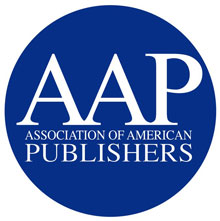July 15, 2019
AAP Sends Letter to Senate Judiciary Committee Supporting Copyright Small-Claims Legislation Markup

On July 15, 2019, the Association of American Publishers (AAP) sent the following letter to the Senate Committee on the Judiciary in support of the Committee’s forthcoming markup of the Copyright Alternative in Small-Claims Enforcement (CASE) Act of 2019:
Dear Chairman Graham and Ranking Member Feinstein:
The Association of American Publishers (AAP) writes to thank you for your leadership in bringing the Copyright Alternative in Small-Claims Enforcement Act of 2019 (CASE Act) to a markup in the Senate Committee on the Judiciary. We strongly support the CASE Act because it offers an affordable and sorely-needed means of dispute resolution for everyone who participates in small copyright transactions, including authors and publishers.
In today’s online marketplace, it is a fact—for better or for worse—that copyright commerce can occur in an instant. By providing a painless mechanism for redress when small claims arise, the CASE Act would go a long way towards recognizing the modern business context in which copyrights may be rapidly implicated by both good and bad faith users, ultimately inspiring more confidence in both the marketplace and rule of law.
AAP represents the leading book, journal, and education publishers in the United States on matters of law and public policy. Just as the Framers intended when they adopted the Copyright Clause of the U.S. Constitution in 1787, we believe that copyright laws should provide clear incentives to write and publish, including the clarity to enforce one’s rights and recover appropriate remedies. Over the years, Congress has consistently acted to update and improve our copyright laws on behalf of the public, not only to fuel the next generation of books, film, music, art and software, but also to ensure the vibrancy and diversity of free speech.
By authorizing a voluntary government tribunal at the U.S. Copyright Office to adjudicate small claims, outside of federal court, the CASE Act would entrust and benefit from a government agency that is eminently qualified to interpret copyright issues and administer copyright practices and regulations. The Copyright Office has served the public with uncommon legal expertise since 1897. Giving the Office the practical authority it needs to resolve copyright claims that would otherwise remain unresolved—as the CASE Act would do—is doubly smart legislation.
Inherently, the CASE Act recognizes that copyright commerce is a powerful economic force that is in the Nation’s best interest. Globally, America’s copyright industries add $1.3 trillion in annual value to U.S. gross domestic product. Locally, these industries support authors, artists, producers, manufacturers, educators, and technologists, among many others, all of whom create and collaborate to advance American progress. The fact is that many copyright transactions are small transactions, but together they contribute to an incalculable footprint of inspiration, education, and innovation.
When I served as United States Register of Copyrights, I had the privilege of directing and delivering to Congress the Copyright Office’s 2013 Report on Small Copyright Claims, which evolved from the Office’s earlier public studies on orphan works. As Congress requested, the Report documents the extensive frustrations of many American creators who, as a practical matter, are sometimes unable to assert or enjoy the full benefits of their intellectual property, as well as the concerns of copyright licensees and other lawful users who require more certainty or quick resolution when disagreements arise.
AAP is pleased that the CASE Act makes the services of the tribunal entirely permissive at the discretion of the parties. And for those who will find it inviting, we think the legislation is fair to both claimants and respondents alike. On the one hand, publishers will invariably be interested in the inexpensive, streamlined process to vindicate low-economic claims on behalf of themselves or their authors, and, on the other hand, publishers will benefit from the bill’s safeguards and limitations, which prevent the claims process from becoming a source of frivolous or nuisance claims.
AAP appreciates that the CASE Act represents the culmination of more than a decade of underlying work by bipartisan Members of Congress, the Copyright Office and a broad range of industry, non-profit, and academic stakeholders committed to modernizing the copyright law. It is therefore no surprise that, in putting this legislation forward, lawmakers have struck an ideal balance between creating an efficient tribunal solution and protecting all participants, as well as the tribunal itself, from potential abuses.
On behalf of AAP, I want to thank you for your leadership in advancing the CASE Act at this time, following years of careful analysis and deliberation. If we can be of assistance on this or other copyright legislation, I hope you will let us know.
Sincerely,
![]()
Maria A. Pallante
President and CEO
Association of American Publishers
cc: Members of the Senate Committee on the Judiciary
